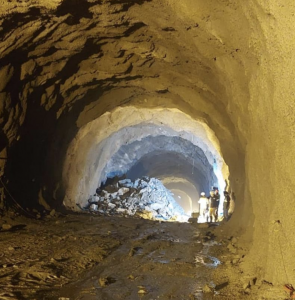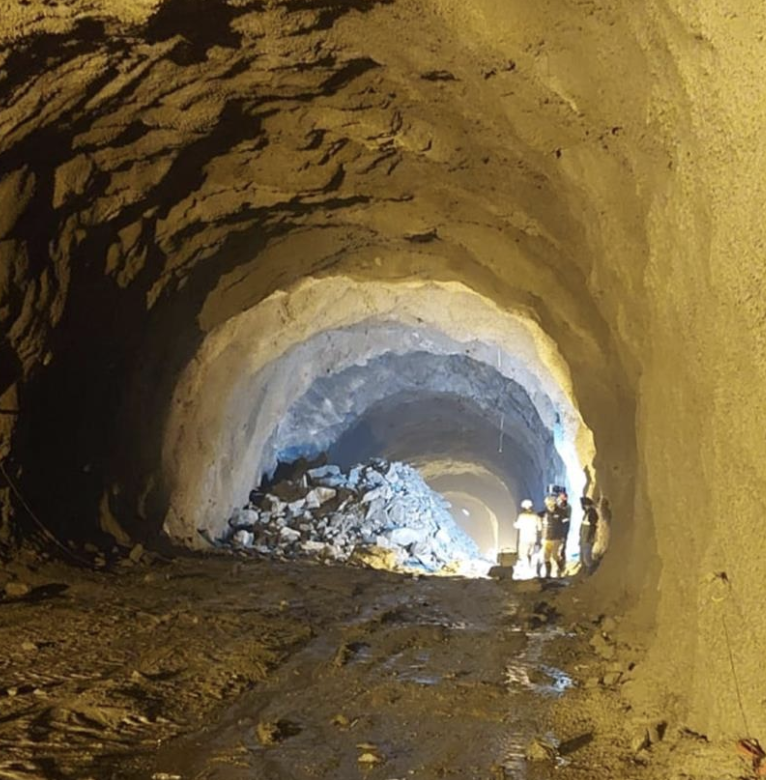NEW DELHI: Indian Railways experts have devised a novel tunnelling technique to finish Tunnel-1, the 111-kilometer Katra–Banihal segment of the Kashmir rail link project, despite the challenging terrain of the Himalayas. The Udhampur-Srinagar-Baramulla Rail Link Project’s Katra-Reasi portion features a 3.2-km single tube tunnel at the base of the Trikuta Hills, which has been dubbed the most challenging part of the project. Railway Minister Ashwini Vaishnaw has recently declared, “We have innovatively developed (I)-TM as Himalayan tunnelling method for tunnelling through the Himalayan geology to build tunnels in Jammu and Kashmir.” A senior railway engineer described the new tunnelling technique, stating that it entailed pre-excavation support measures to address the “flowing conditions” observed during tunnel excavation.The railroads also rerouted the train line so that only a tiny section travels through the challenging terrain—which the engineers had declared to be the worst they had ever encountered—when constructing tunnels in the nation. A senior railway engineer participating in the project’s development stated, “We inserted nine-meter pipes in the mountains. The engineers decided to provide rigid supports using ‘ISHB’ as opposed to the lattice girder method used in the New Austrian Tunnelling Method.” We refer to it as pipe roofing. We used these perforated poles and filled them with PU grout to create an umbrella. This substance reacts with the soil to triple its volume and turn it into a rock-like substance. The stability of this structure is checked, and then we gradually start excavating,” the engineer stated. In order to let the stratum relax and shed water, he added the engineers also included stress release holes and wing drainage holes. The challenging terrain has caused the work to progress more slowly. If these circumstances had arisen in any other nation, they would have left the location. However, we made the decision to proceed and use a novel tunnelling technique,” he remarked. After being delayed for more than three years starting in 2017, engineers now intend to finish this important tunnel by the beginning of next year. The Katra-Banihal stretch is 111 km long and mostly consists of tunnels. There are eight escape tunnels (67 km) in addition to the 27 main tunnels (97 km). There are 37 bridges in this segment, 26 major and 11 minor.


